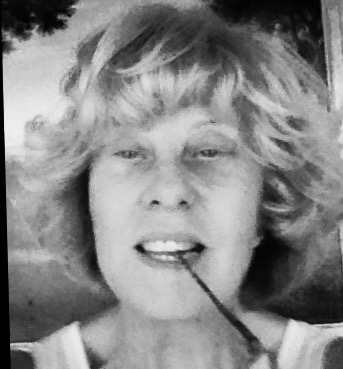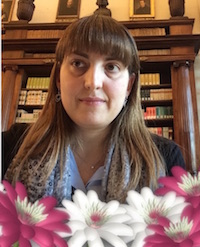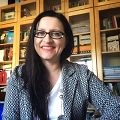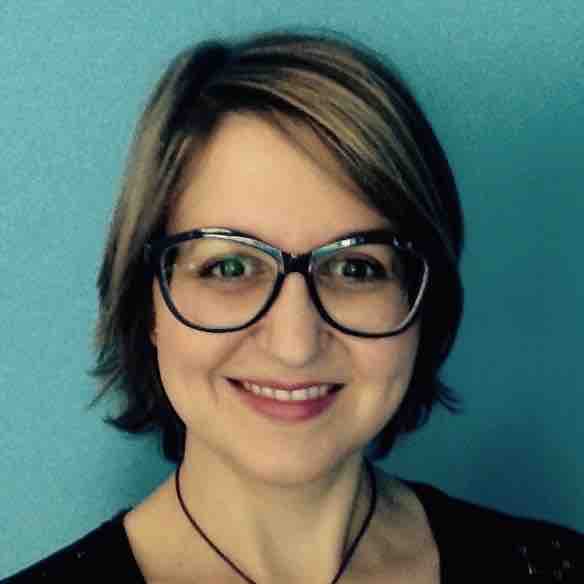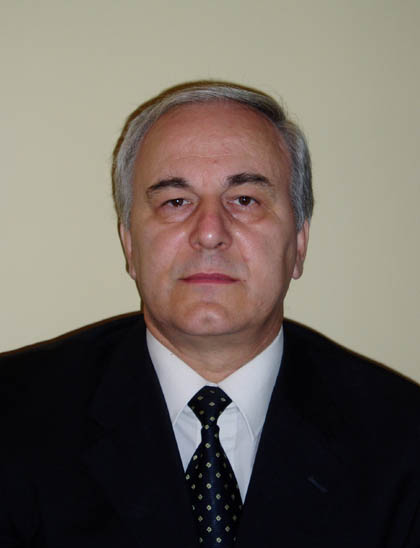Studying at the University of Verona
Here you can find information on the organisational aspects of the Programme, lecture timetables, learning activities and useful contact details for your time at the University, from enrolment to graduation.
Academic calendar
The academic calendar shows the deadlines and scheduled events that are relevant to students, teaching and technical-administrative staff of the University. Public holidays and University closures are also indicated. The academic year normally begins on 1 October each year and ends on 30 September of the following year.
Course calendar
The Academic Calendar sets out the degree programme lecture and exam timetables, as well as the relevant university closure dates..
| Period | From | To |
|---|---|---|
| I semestre | Oct 1, 2018 | Jan 12, 2019 |
| II semestre | Feb 18, 2019 | Jun 1, 2019 |
| Session | From | To |
|---|---|---|
| ESAMI LINGUE- sessione invernale | Jan 14, 2019 | Feb 16, 2019 |
| ESAMI LINGUE- sessione estiva | Jun 3, 2019 | Jul 27, 2019 |
| ESAMI LINGUE- sessione autunnale | Aug 26, 2019 | Sep 21, 2019 |
| Session | From | To |
|---|---|---|
| LAUREE LINGUE - sessione autunnale (a.a. 2017/18) | Nov 12, 2018 | Nov 17, 2018 |
| LAUREE LINGUE - sessione straordinaria (a.a. 2017/18) | Apr 1, 2019 | Apr 6, 2019 |
| LAUREE LINGUE - sessione estiva (a.a. 2018/19) | Jul 8, 2019 | Jul 13, 2019 |
| LAUREE LINGUE - sessione autunnale (a.a. 2018/19) | Nov 4, 2019 | Nov 9, 2019 |
| LAUREE LINGUE - sessione straordinaria (a.a. 2018/19) | Mar 30, 2020 | Apr 4, 2020 |
| Period | From | To |
|---|---|---|
| Festa di Ognissanti | Nov 1, 2018 | Nov 1, 2018 |
| Sospensione dell'attività didattica | Nov 2, 2018 | Nov 3, 2018 |
| Festa dell’Immacolata | Dec 8, 2018 | Dec 8, 2018 |
| VACANZE DI NATALE | Dec 22, 2018 | Jan 6, 2019 |
| VACANZE DI PASQUA | Apr 19, 2019 | Apr 23, 2019 |
| Sospensione dell'attività didattica | Apr 24, 2019 | Apr 24, 2019 |
| Festa della liberazione | Apr 25, 2019 | Apr 25, 2019 |
| Festa del lavoro | May 1, 2019 | May 1, 2019 |
| Sospensione dell'attività didattica | May 20, 2019 | May 20, 2019 |
| Festa del Santo Patrono | May 21, 2019 | May 21, 2019 |
| Festa della Repubblica | Jun 2, 2019 | Jun 2, 2019 |
Exam calendar
Exam dates and rounds are managed by the relevant Foreign Languages and Literatures Teaching and Student Services Unit.
To view all the exam sessions available, please use the Exam dashboard on ESSE3.
If you forgot your login details or have problems logging in, please contact the relevant IT HelpDesk, or check the login details recovery web page.
Academic staff
 cecilia.cantalupi@univr.it
cecilia.cantalupi@univr.it
 katiuscia.darici@univr.it
katiuscia.darici@univr.it
 elisa.destro@univr.it
elisa.destro@univr.it
Hinterholzl Roland
 stella.merlin@univr.it
stella.merlin@univr.it
 sara.paolini@univr.it
sara.paolini@univr.it

Pisaniello Valerio
 valerio.pisaniello@univr.it
valerio.pisaniello@univr.it
 +39 045802 8381
+39 045802 8381
 alberto.scandola@univr.it
alberto.scandola@univr.it
 massimo.scotti@univr.it
massimo.scotti@univr.it
 silvia.zollo@univr.it
silvia.zollo@univr.it
Study Plan
The Study Plan includes all modules, teaching and learning activities that each student will need to undertake during their time at the University.
Please select your Study Plan based on your enrollment year.
1° Year
| Modules | Credits | TAF | SSD |
|---|
1st foreign language2nd foreign language1st foreign literature2nd foreign literature1 module to be chosen among the following2° Year activated in the A.Y. 2019/2020
| Modules | Credits | TAF | SSD |
|---|
1st foreign language2nd foreign language1st foreign literature2nd foreign literature1 module to be chosen among the following3° Year activated in the A.Y. 2020/2021
| Modules | Credits | TAF | SSD |
|---|
1st foreign language2nd foreign language1st foreign literature2nd foreign literature1 module among the following (philology related to 1st or 2nd foreign language)1 module among the following| Modules | Credits | TAF | SSD |
|---|
1st foreign language2nd foreign language1st foreign literature2nd foreign literature1 module to be chosen among the following| Modules | Credits | TAF | SSD |
|---|
1st foreign language2nd foreign language1st foreign literature2nd foreign literature1 module to be chosen among the following| Modules | Credits | TAF | SSD |
|---|
1st foreign language2nd foreign language1st foreign literature2nd foreign literature1 module among the following (philology related to 1st or 2nd foreign language)1 module among the following| Modules | Credits | TAF | SSD |
|---|
Legend | Type of training activity (TTA)
TAF (Type of Educational Activity) All courses and activities are classified into different types of educational activities, indicated by a letter.
Russian Literature 2 (2019/2020)
Teaching code
4S002943
Teacher
Coordinator
Credits
9
Also offered in courses:
- Russian Literature 2 of the course Bachelor's degree in Languages and Cultures for Publishing
Language
Russian
Scientific Disciplinary Sector (SSD)
L-LIN/21 - SLAVIC STUDIES
Period
I semestre (Lingue e letterature straniere) dal Sep 30, 2019 al Jan 11, 2020.
Learning outcomes
This course is a natural prosecution to the course of Russian literature hold in the first year because it focuses on those topics connected with history, culture and arts in the contemporary Russia (XIX and XX centuries).
On successful completion of the module, students must be able to:
1) know the main events of Russian history and to understand the essential elements of modern Russian culture, focusing on 20th century;
2) apply the acquired knowledge in analysing the texts studied during the course, using the given references;
3) develop a personal opinion concerning the main topics covered in the course and to express them in a coherent and proper form.
Program
«Science Fiction, Utopia e Modernity in Soviet Era»
Science fiction is a characteristic genre of the 20th century. It grew up step by step with the acceleration in scientific and technological progress bringing, namely, to the space race. We usually associate literary and cinematographic science fiction production esclusively with North-American culture. This way, we forget an essential part of the science fiction development: ie. the Russian-Soviet and East-European variants of science fiction, which not only have played a crucial historical role, but also stood out for originality and introduced more often than it could happen in the American science fiction deeply philosophical themes; at times, they brought it far from standard science fiction as a typical mass art. Moreover, it may be said that Russian, and then Soviet culture would have a primary role in the same process of foundation of the science fiction, as far as it accompanied the growing of Astronautics, having several Russian scientists between its pioneers. Eventually should be also remembered the utopian component, which is connected to the socio-political revolutions and most of all to the Soviet experience, pervading science fiction initially as an element of futuristic phantasy playing in parallel with the Socialist Revolution; afterwords, as an imaginary appendix to Soviet space race; and finally as a tool for expressing a philosophical criticism towards Bolshevik utopia’s decadence.
The first language of the course will be the Italian language. We shall use texts in Russian as well, reading and translating them in class. Only part of the provided materials will be in Italian or in English.
BIBLIOGRAPHY:
An anthology of texts will be avalable at the beginning of the cours.
Furthermore, every student has to read and study dovrà leggere e studiare at least one of the following works (in original or translation):
- Fedor Dostoevskij, Il sogno di un uomo ridicolo (Ф.М. Достоевский, «Сон смешного человека»)
- E. Zamjatin, Noi (Е. Замятин, «Мы»)
- A. Bogdanov, La stella rossa (А. Богданов, «Красная звезда»)
- M. Bulgakov, Le uova fatali (М. Булгаков, «Роковые яйца»)
- M. Bulgakov, Cuore di cane (М. Булгаков, «Собачье сердце»)
- A.N. Tolstoj, Aelita (А.Н. Толстой, «Аэлита»)
- B. e A. Strugackie, Lunedì comincia sabato (Б. и А. Стругацкие, «Понедельник начинается в субботу»)
FILMOGRAPHY:
- Аэлита (1924), реж. Я. Протазанов
- Человек амфибия (1961), реж. В. Чеботарев и Г. Казанский
- Солярис (1972), реж. А. Тарковский
- Сталкер (1979), реж. А. Тарковский
MAIN CRITICAL LITERATURE:
- S. Lem, Micromondi, Roma, Ed. Riuniti 1992 (una scelta di saggi)
- С. Лем, Мой взгляд на литературу, Москва, АСТ 2009
- AA.VV., Storia della letteratura russa. Il Novecento, diretta da E. Etkind, G. Nivat, I. Serman e V. Strada, Torino, Einaudi 1989 (una scelta di capitoli fornita dal docente a inizio corso).
- G.P. Piretto, Quando c’era l’URSS: 70 anni di storia culturale sovietica, Milano, Raffaello Cortina 2018
ПРОГРАММА
«Научная фантастика, Утопия и Современность в Советское время»
Научная фантастика – жанр, который характеризует ХХ век, она родилась бок о боку с ускорением научно-технологического прогресса, приводившего, в частности, к «завоеванию космоса». Принято ассоциировать научную фантастику с северо-американской культурой; таким образом упускается с виду значительную часть научной фантастики – русско-советскую и восточно-европейскую научную фантастику, которые не только имели важную историческую роль, но и отличаются оригинальностью и чаще, чем это происходит в американском science fiction включают в себе мотивы и приемы глубоко философского характера, в сиду которых они часто удаляются от понятия научной фантастики как жанр массового искусства. Более того, можно утвердить, что русская, а дальше советская культура имела принциально важную роль для самого рождения научной фантастики как жанр, параллельно с рождением космонавтики, считавшей много русских ученых среди своих пионеров. Еще и нельзя забыть об утопической составляющей, связанной с социо-политическими революциями ХХ века и, в частности, с советским экспериментом, который придал советской научной фантастике сначала вид фантазийного варианта и проекции на будущее социалистической революции, потом вид вообразительного приложения к советскому завоеванию космоса и напоследок вид выражения скрытой философской критики по отношению большевистской утопии и ее увядания.
Основной язык курса – итальянский, но анализируемые тексты будут преимущественно на русском языке.
МАТЕРИАЛЫ:
В начале курса будет предоставлена хрестоматия основных текстов.
Вдобавок, каждый студет обязан прочитать и анализировать хотя бы одно из следующих произведений:
- Ф.М. Достоевский, «Сон смешного человека»
- Е. Замятин, «Мы»
- А. Богданов, «Красная звезда»
- М. Булгаков, «Роковые яйца»
- М. Булгаков, «Собачье сердце»
- А.Н. Толстой, «Аэлита»
- Б. и А. Стругацкие, «Понедельник начинается в субботу»
ОСНОВНАЯ ФИЛЬМОГРАФИЯ:
- Аэлита (1924), реж. Я. Протазанов
- Человек амфибия (1961), реж. В. Чеботарев и Г. Казанский
- Солярис (1972), реж. А. Тарковский
- Сталкер (1979), реж. А. Тарковский
ОСНОВНАЯ ЛИТЕРАТУРА:
- S. Lem, Micromondi, Roma, Ed. Riuniti 1992 (una scelta di saggi)
- С. Лем, Мой взгляд на литературу, Москва, АСТ 2009
- AA.VV., Storia della letteratura russa. Il Novecento, diretta da E. Etkind, G. Nivat, I. Serman e V. Strada, Torino, Einaudi 1989 (una scelta di capitoli fornita dal docente a inizio corso).
- G.P. Piretto, Quando c’era l’URSS: 70 anni di storia culturale sovietica, Milano, Raffaello Cortina 2018
Examination Methods
Aims: the aim of the exam is to verify:
- The acquisition by the students of the basic space-temporal and conceptual coordinates learned in the course
- The appropriate knowledge concerning the topic and the instruments analysed during the course and/or planned in the programme
- The ability to value independently e with a full knowledge of the situation the peculiar historical, social and cultural phenomena of Russia, above all those ones concerning the period analysed in the course.
Contents:
The exam will be about the contents included in the programme and about the literary, artistic and historic cultural materials analysed during the course.
Methods for conducting:
The exam is oral and is an interview during which the student must present with precision and showing the ability to judge independently about what has been learned during the course and the individual preparation. The programme is the same for both the attending and non-attending students: the last ones can find the necessary materials to study in the programme, in the lecture notes and on the e-learning internet page; they could ask the professor for additional material or explanations during the office hours if needed.
Arrangements for evaluating:
Single vote in thirties.
Type D and Type F activities
To discover all the teaching activities accredited by the foreign teaching college click here
Career prospects
Module/Programme news
News for students
There you will find information, resources and services useful during your time at the University (Student’s exam record, your study plan on ESSE3, Distance Learning courses, university email account, office forms, administrative procedures, etc.). You can log into MyUnivr with your GIA login details: only in this way will you be able to receive notification of all the notices from your teachers and your secretariat via email and also via the Univr app.
Gestione carriere
Student login and resources
Modalità e sedi di frequenza
La frequenza non è obbligatoria.
Maggiori dettagli in merito all'obbligo di frequenza vengono riportati nel Regolamento del corso di studio disponibile alla voce Regolamenti nel menu Il Corso. Anche se il regolamento non prevede un obbligo specifico, verifica le indicazioni previste dal singolo docente per ciascun insegnamento o per eventuali laboratori e/o tirocinio.
È consentita l'iscrizione a tempo parziale. Per saperne di più consulta la pagina Possibilità di iscrizione Part time.
Le sedi di svolgimento delle lezioni e degli esami sono le seguenti:
- Polo Zanotto (vicino si trovano anche il Palazzo di Lettere e di Lingue)
- Polo Santa Marta
Assegnazione tutore
Attività accreditate D/F
Calendario didattico dettagliato
Cambio lingua curriculare
Competenze informatiche
Competenze linguistiche (prima e seconda lingua)
Competenze linguistiche in triennale (terza lingua CFU F)
Compilazione del piano didattico
Corso di Lingua portoghese
Erasmus+ e altre esperienze all'estero
Linguistic training CLA
Presentazione dei corsi di studio e Open day
Graduation
Saperi minimi
Stage e tirocini
Le attività di stage sono finalizzate a far acquisire allo studente una conoscenza diretta in settori di particolare interesse per l’inserimento nel mondo del lavoro e per l’acquisizione di abilità professionali specifiche.
Le attività di stage sono svolte sotto la diretta responsabilità di un singolo docente presso studi professionali, enti della pubblica amministrazione, aziende accreditate dall’Ateneo veronese.
I crediti maturati in seguito ad attività di stage saranno attribuiti secondo quanto disposto nel dettaglio dal “Regolamento d’Ateneo per il riconoscimento dei crediti maturati negli stage universitari” vigente.
- Tutte le informazioni in merito agli stage per futuri studenti sono disponibili alla pagina Stage e tirocini.
- Tutte le informazioni in merito agli stage per studenti iscritti sono pubblicate in MyUnivr - come fare per - stage e tirocini.
- Tutte le informazioni in merito agli stage per le aziende sono disponili alla pagina Stage e tirocini per azienze.
Ulteriori informazioni al seguente link https://www.univr.it/it/i-nostri-servizi/gestione-carriere-studenti-lingue-e-letterature-straniere/stage-e-tirocini-lingue-e-letterature-straniere




